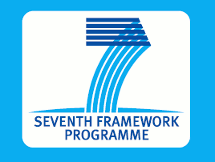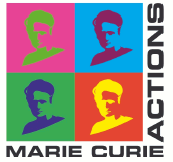Summary of work performed
The whole work within ArSInformatiCa project is divided into three research work packages WP1, WP2, and WP3 as well as networking training work package WP4. Since the beginning of the project, the work has been performed according to the Gantt chart included in Description of Work, defining work packages distribution during the project. As envisaged in this chart, all work packages have been started during the outgoing phase of ArSInformatiCa, to fully utilize opportunity of discussing the scope of given work package with scientific staff of the Rice University.
In accordance with the distribution of work packages over time, none of work packages have been yet completed. However, work package WP1 “Modelling human evolution” is close to be finished, what is expected according to the Description of Work in February 2014. Within this work package, out of four tasks, three tasks:
T1.1: “training in advanced methods of population genetics and bio-statistics (mutation-selection interplay, stochastic processes) and studying models of human evolution using these methods”,
T1.2: “Development of the author’s MNH coalescent-based method for detection of signatures of Darwinian selection at molecular level in generalised neutral model of human evolution”,
T1.3: “Development of the software for forward-time simulation of human population evolution modelled by Markov slightly supercritical branching process” have been fully completed.
The work in the last, fourth task, T1.4: “Formulation of the model for estimating the Neanderthal mtDNA admixture in the population of Upper Palaeolithic H. sapience gene pool. Application of the model using developed software and NGP nuclear and mitochondrial genome data” is already at very mature level of implementation, subject to be completed until February 2014.
The work performed within work package WP2 is in full accordance with envisaged plan: two out of four tasks have been completed:
T2.1: “Development of ML, coalescent, and time-forward simulation tools: verification of the MNH method as an expert knowledge generator. Using MNH and actual genetic data for creating training sets designed for ML-based search for the selection in chosen genes implicated in human familial cancer. Statistical pre-processing of phased-haplotypes data”, and
T2.2: “Training in efficient accessing genetic data in large-scale, high-credibility genetic databases”
The work within last research work package WP3, as envisaged in Description of Work, has started with the first task, T3.1: “ Studying CDCV vs. CDRV paradigms. Developing professional, multi-thread, parallel coalescent-based software for generating whole-genome sequences”.
Finally, within work package WP4: “Training in networking activities in institutions having potential for developing collaboration” the envisaged task T4.1: “networking training outside Rice premises” has been accomplished during the first period of the project.



